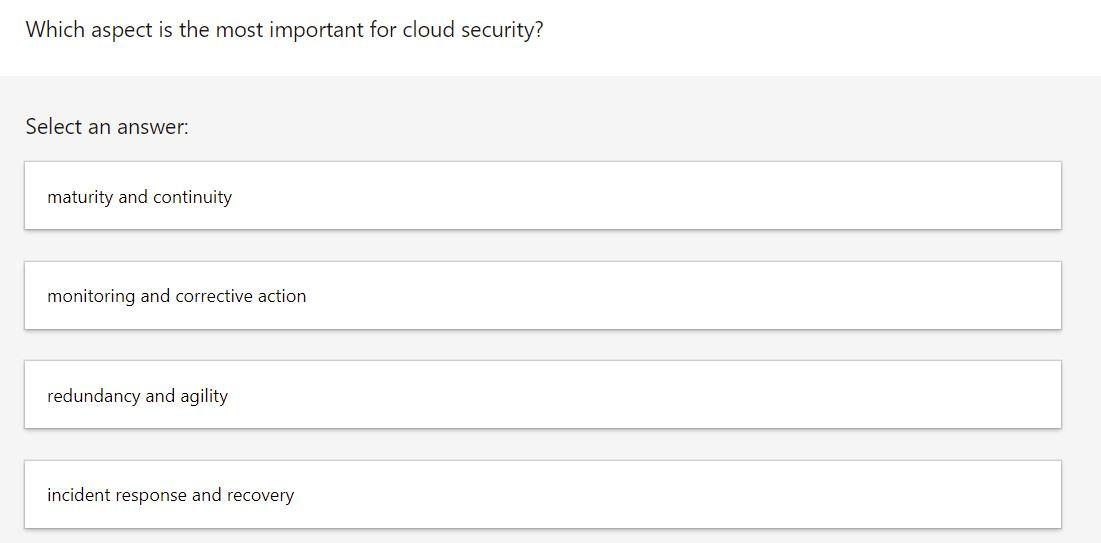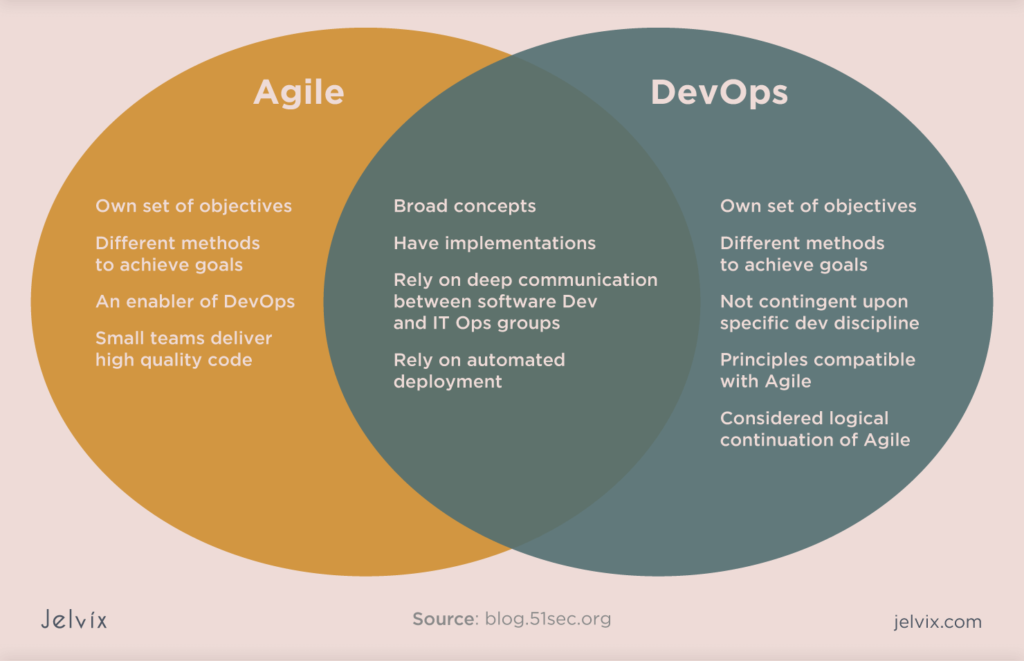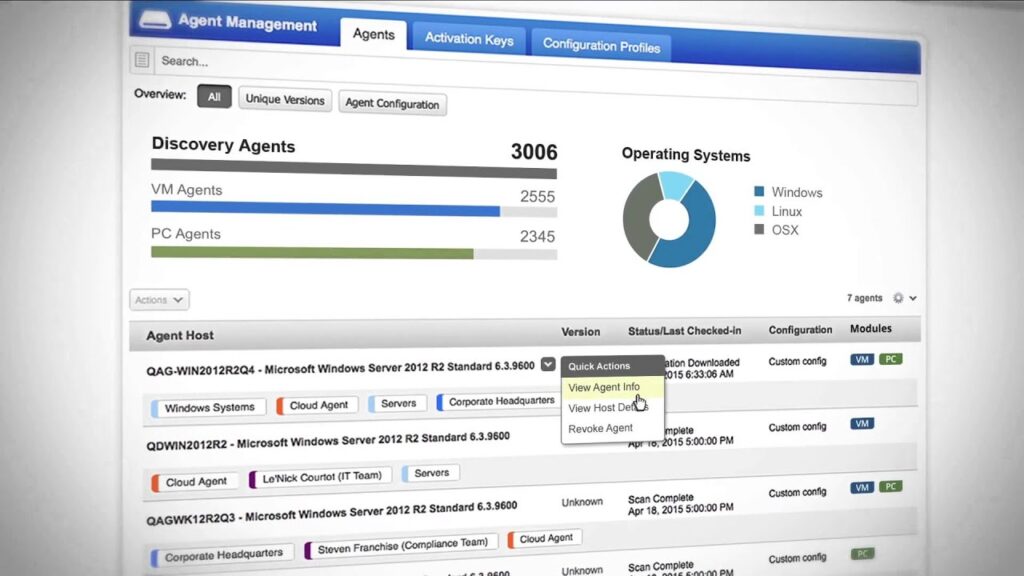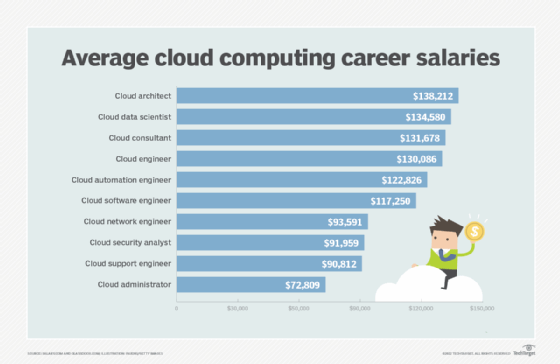The world of technology is constantly evolving, and cloud computing has become a crucial aspect of this evolution. As more businesses and individuals move their data and applications to the cloud, the need for secure cloud computing has become more critical than ever. With the rising number of cyber threats, it is essential to ensure that all data stored in the cloud is secure and protected against unauthorized access.
However, with multiple cloud security measures available, it can be challenging to determine which one is the most important. Is it encryption, access control, or data backup? In this article, we will explore the various aspects of cloud security and determine which one is the most critical. So, whether you are a business owner, IT professional or just someone interested in the world of technology, read on to discover the most important aspect of cloud security.
The most important aspect of cloud security is authentication and access control. Authentication is the process of verifying users and granting them access to the cloud environment. Access control is the process of granting or denying access to certain data, applications, or other resources. Both authentication and access control should be done using secure methods such as multi-factor authentication and role-based access control.
Cloud Security: Which Aspect is Most Important?
In the cloud computing world, security is paramount. It is crucial for organizations to prioritize which aspect of security is most important when protecting their data and applications. Cloud security is a complex issue that requires an understanding of the various elements that contribute to a secure environment. In this article, we will examine the different aspects of cloud security and discuss which is the most important.
Data Protection
Data protection is critical to the success of cloud computing. Organizations must ensure that their data is properly secured and protected from unauthorized access. This includes using encryption to protect sensitive data, as well as access control policies such as authentication and authorization. Data protection also includes implementing robust backup and recovery plans to ensure that data is always available in the event of a disaster.
Data protection is a key element of cloud security and should not be overlooked. Organizations must ensure that their data is properly secured and that access is limited to authorized personnel only. Additionally, organizations should have a robust backup and recovery plan in place to ensure that data is always available.
Network Security
Network security is an essential component of cloud security. Organizations must ensure that their networks are properly secured to prevent unauthorized access. This includes implementing firewalls, intrusion detection systems, and other security measures to protect the network from attacks. Additionally, organizations should ensure that they are utilizing secure protocols such as TLS/SSL to protect data in transit.
Network security is also important for ensuring that data is not intercepted or stolen while in transit. Organizations must ensure that their networks are properly secured and that data is encrypted when transmitted over the network. Additionally, organizations should ensure that they have a robust intrusion detection system in place to detect and respond to potential threats.
Compliance
Compliance is an important aspect of cloud security. Organizations must ensure that they are compliant with any applicable regulations or laws. This includes implementing the necessary policies and procedures to ensure that they are compliant with applicable regulations. Additionally, organizations should ensure that they are monitoring their cloud environment to ensure that they remain compliant.
Compliance is an essential part of cloud security. Organizations must ensure that they are compliant with applicable regulations and that they are monitoring their environment to ensure continued compliance. Additionally, organizations should ensure that they have the necessary policies and procedures in place to protect their data and applications.
Identity and Access Management
Identity and access management is a critical component of cloud security. Organizations must ensure that they are properly managing user identities and access to their data and applications. This includes implementing strong authentication and authorization policies to ensure that only authorized users have access to data and applications. Additionally, organizations should ensure that they are monitoring user activity to detect any suspicious behavior.
Identity and access management is an important aspect of cloud security. Organizations must ensure that they are implementing strong authentication and authorization policies to protect their data and applications from unauthorized access. Additionally, organizations should ensure that they are monitoring user activity to detect any suspicious behavior.
Risk Management
Risk management is an essential element of cloud security. Organizations must ensure that they are properly managing and mitigating any potential risks. This includes identifying potential risks and implementing the necessary controls to mitigate those risks. Additionally, organizations should ensure that they are monitoring their environment for any changes that could potentially introduce new risks.
Risk management is a key component of cloud security. Organizations must ensure that they are properly managing and mitigating any potential risks. This includes identifying potential risks and implementing the necessary controls to mitigate them. Additionally, organizations should ensure that they are monitoring their environment for any changes that could potentially introduce new risks.
Frequently Asked Questions
Cloud security is a complex topic that involves multiple aspects and considerations. The most important aspects to consider when it comes to cloud security are data security, access control, and compliance.
What is the most important aspect for cloud security?
Data security is the most important aspect for cloud security. Data security involves protecting data from unauthorized access, ensuring that data is secure while it is being transferred, and preventing data loss. The best way to ensure data security is by using encryption, data masking, and other security measures.
Access control is also important for cloud security. Access control involves setting up permissions and access rights for different users, as well as implementing authentication measures. This ensures that only authorized users can access the data in the cloud. Additionally, access control can help ensure compliance with regulations such as GDPR, CCPA, and other data privacy laws.
What measures can be taken to ensure data security in the cloud?
One of the most effective measures for ensuring data security in the cloud is encryption. Encryption scrambles the data so that it is unreadable by anyone who does not have the encryption key. Additionally, data masking can be used to ensure that sensitive data is not exposed. Data masking replaces sensitive data with random characters so that it is not readable by unauthorized users.
Other measures that can be taken to ensure data security in the cloud include access control, authentication, and audit logging. Access control ensures that only authorized users can access the data in the cloud, while authentication can be used to verify that users are who they say they are. Audit logging is important for tracking and monitoring access to the data.
What is the importance of access control in cloud security?
Access control is an important aspect of cloud security as it ensures that only authorized users can access the data in the cloud. Access control involves setting up permissions and access rights for different users, as well as implementing authentication measures. This ensures that only users with the appropriate permissions can access the data. Additionally, access control can help ensure compliance with data privacy regulations such as GDPR and CCPA.
Access control also helps to protect the data from unauthorized access. Without access control, the data could be accessed by anyone with the right credentials. By implementing access control measures, only users with the proper authorization can access the data. Additionally, access control can help ensure that the data is not inadvertently exposed to malicious actors.
How can audit logging help with cloud security?
Audit logging is an important aspect of cloud security as it helps to track and monitor access to the data. Audit logging involves recording information about who has accessed the data, when they accessed it, and what they did with it. This information can then be used to identify any unauthorized access attempts, as well as any malicious activities.
Audit logging can also be used to detect any suspicious activity in the cloud. For example, if a user is accessing data they should not have access to, audit logging can help identify this and take the appropriate actions. Additionally, audit logging can help to ensure compliance with data privacy regulations, as it can provide a record of who has accessed the data and what they did with it.
What are the benefits of using encryption for cloud security?
Encryption is an important aspect of cloud security as it helps to protect data from unauthorized access. Encryption scrambles the data so that it is unreadable by anyone who does not have the encryption key. This ensures that the data can only be accessed by those with the encryption key, which helps to protect the data from unauthorized access.
Encryption can also help to ensure compliance with data privacy regulations. For example, GDPR and CCPA require that data be protected from unauthorized access. By using encryption, organizations can ensure that the data is protected from unauthorized access, thus helping to ensure compliance with these regulations. Additionally, encryption can help to protect the data even if it is stolen or exposed in a data breach.
In conclusion, cloud security is a complex and multifaceted topic that requires careful consideration and implementation. While there are many aspects of cloud security that are important, it is clear that data protection is the most critical. Without proper data protection measures in place, cloud users risk exposing their sensitive information to cybercriminals and other malicious actors.
Therefore, to ensure that cloud security is effectively implemented and maintained, organizations must prioritize data protection. This includes implementing strong encryption protocols, regularly monitoring and auditing data access and usage, and ensuring that all cloud service providers adhere to strict security standards. By focusing on data protection, organizations can safeguard their sensitive information and minimize the risk of data breaches and other security incidents in the cloud.





